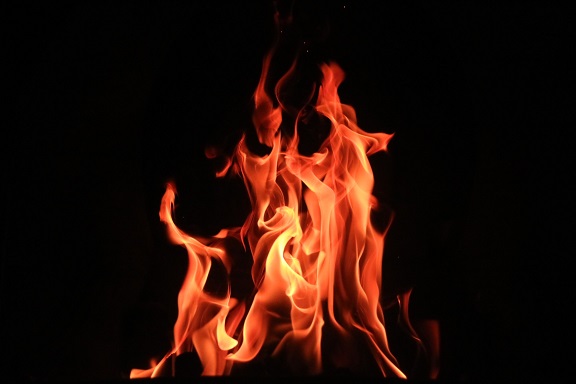A slow gaming computer is every gamer’s nightmare. Because gaming computers are meant to be fast.
Plenty of performance to handle demanding games on max settings and applications. In this article, we explain why your gaming computer is so slow and how to fix it.
5 Reasons Why Your Gaming Laptop Is Slow
A slow gaming computer is a big problem. Here are five major reasons why your gaming laptop is not as fast as it should or used to be:
Graphic Drivers Are Not Up To Date or Issues
Messed up or outdated graphic drivers can cripple your gaming computer’s performance. Messed up graphic drivers, especially can cause severe performance drops and crashes.
For example, some drivers for the AMD Radeon 5700 XT cause screen flickering and low FPS during gameplay even though it’s a powerful card.
Software issues were what made the AMD Radeon 5700 XT less popular than the NVIDIA RTX cards.
An outdated graphics card driver can also cause poor gaming performance. A graphics card although optimised in the past won’t be in the future.
Because of this graphics drivers are released every month or year.
Downloading the latest graphics card optimizes the graphics card performance until it’s not able to handle current games smoothly.
Drivers might very well be the reason why your gaming computer is slow.
Overheating
Another cause of a slow gaming computer is overheating. Demanding games require a lot of performance and power to run.

And when machines run especially under heavy loads a lot of heat is generated. If your cooling system is not good and the hardware reaches a certain temperature. Performance drops.
A failsafe mechanism to prevent the hardware from blowing up. Once the temperature reaches an appreciable level. The performance rises again until it hits that dangerous temperature.
In other words, the CPU and GPU thermal throttles in order to reduce high temperatures. And if your gaming computer is always running at high temperatures. The performance is going to be slow or sub-par.
Not Enough RAM or Performance
Slow hardware means slow performance depending on what games you plan to run.
For example, a GTX 1650, Intel Core i5 and 8GB are never going to give you the best performance when playing demanding games on the highest settings.
Or it might be the combination of the CPU and GPU that causes a bottleneck negatively impacting performance. There is also the issue of having powerful hardware but not enough RAM.
Too Much Bloatware
Bloatware is considered software trash and sometimes makes your computer slow. Most bloatware programs run in the background and cause a performance drain.
Kind of like a parasite. Windows is a big culprit when it comes to bloatware.
Outdated Hardware
You might be using outdated hardware. Software is becoming more demanding very fast. The hardware needed to run software 3 – 5 years ago might not be enough for a lot of games and software today.
Because the current software has higher system requirements than before. New software comes with a ton of features. This makes it difficult for hardware released a few years ago to run them well.
How To Stop Your Gaming Computer From Being So Slow
Now that you know the 5 major reasons on why your gaming computer might be slow. It’s time for the solutions.
Update The Drivers
Update your drivers to the latest version. Most of the time, this solution solves the performance problem. Outdated drivers can cause performance drops and crashes.
But, what if it’s the latest drivers? Simply roll back the driver updates. This solution works for messed up drivers. You either update or rollback the drivers.
Solve The Overheating
There are so many reasons why your gaming computer is overheating. High temperatures cause massive drops in performance in order to reduce the temperature.
Here are a few questions below in order to troubleshoot the problem.
- Are the GPU or CPU Fans Spinning?
- Has thermal paste been applied?
- Is the computer dirty or dusty? A dusty computer makes it difficult for cool air to come in and hot air to escape.
You could also try to underclock and undervolt the GPU and CPU for better performance and temperatures.
Increase the Amount of RAM or Performance
Increasing the RAM to a larger amount always has a noticeable effect on performance. You can also try getting new hardware that means the recommended requirements of games you want to run.
Overclocking is another way of increasing performance. But, you need to make sure your gaming computer has a good cooling system. Because the greater the performance, the hotter it runs.
Get Rid Of Useless Software
Removing bloatware should be the first thing you do when you install Windows. This makes sure that no apps or programs are running in the background.
Also, more of the hardware resources will be allocated to the program or task at hand.
Get A New Gaming Computer
If you bought a gaming computer a few years ago. Then it might be time for an upgrade or change. Requirements back then are not the same now.
In order to use your gaming computer for a long time. To the extent that, 3 – 5 years down the line. It’s still going strong. Then you need to get top of the line hardware. That way you make it futureproof.
Final Thoughts
A slow gaming computer can be easily fixed. Because you can swap out the hardware for newer and faster ones.
There is also the option of optimising the software and hardware tweaks. The good news is that all these solutions work. That’s why your gaming computer is so slow.
You might Also Like
